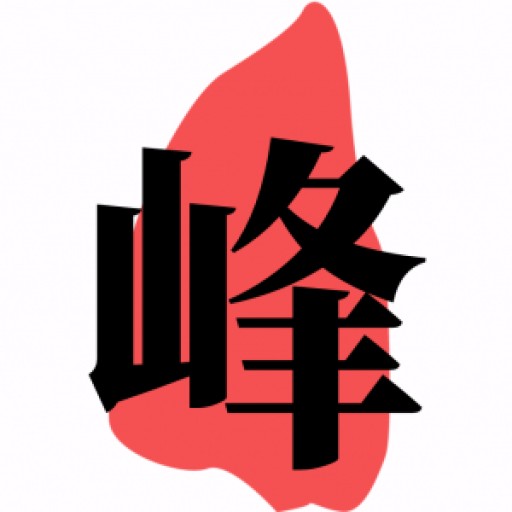在日常交流中,我们常常会听到类似“这是一本好书”,“这是一部好电影”或者“这是个不错的主意”之类的表达。单词“good”似乎被用得非常频繁,甚至有点“被滥用”的感觉。那么,我们是否可以找到一些既能传达相同意思,又能避免过度使用“good”的替代词呢?今天,蛋老师为大家精心挑选了十个词汇,既可以丰富我们的口语表达,也能提升写作水平。从此告别单一的“good”,让我们一起看看这些有趣的选择吧!
1. 卓越的、杰出的(Excellent)
当我们想表达某物或某事非常出色时,“excellent”是一个非常合适的替代词。无论是形容食物、汽车的状态,还是某个好消息,都可以用“excellent”来传达其极高的质量和价值。
例如:“这食物真是美味极了。”(The food was excellent.)
“她的汽车保养得很好。”(Her car is in excellent condition.)
“对于借款人来说,利率的下降真是一个好消息。”(The fall in interest rates is excellent news for borrowers.)
“我们的销售额连续三年增长。”“好极了!”("Our sales are up for the third year in a row." "Excellent!")
2. 令人惊讶的(Extremely Surprising)
当某事令我们感到惊讶或惊叹时,我们可以用“amazing”来代替“good”。这个词不仅表达了惊奇,还带有一种让人意想不到的情感。
例如:“这种去污剂简直太有效了,真是令人!”(This stain remover really works—it’s amazing!)
“新剧院的建设将花费惊人的资金。”(The new theatre is going to cost an amazing amount of money.)
“总经理竟然只有23岁,真是太惊人了。”(It’s amazing to think that the managing director is only 23.)
“没人去申请这个职位,真让人惊讶。”(It’s amazing that no one else has applied for the job.)
3. 极好的、值得称赞的(Wonderful)
“Wonderful”通常用来形容令人愉快、令人印象深刻的事物。它可以表达出一种极为积极的情感,适用于朋友、活动、经历等方面。
例如:“他是个非常出色的厨师。”(He’s a wonderful cook.)
“你知道达里尔要结婚了吗?真是太棒了!”("Did you know that Daryl's getting married?" "No, I didn’t. How wonderful!")
“去年夏天我们在意大利度过了一个非常愉快的时光。”(We had a wonderful time in Italy last summer.)
4. 令人愉快的、友好的(Pleasant)
“Pleasant”表示某物或某人给人带来愉悦的感觉,通常用来形容气候、微笑或是日常的互动。
例如:“她的笑容非常亲切。”(A pleasant smile.)
“这是一段愉快的时光。”(A pleasant day.)
“哈罗德尽力让那位老人感到愉快。”(Harold did his best to be pleasant to the old man.)
“站了几个小时后,能坐下来真是太舒服了。”(It was pleasant to sit down after standing for hours.)
5. 极好的(Marvellous)
如果你想表达某事令人感到惊叹、不可思议的好,可以使用“marvellous”这个词,它常带有一种“绝对精彩”的意味。
例如:“他做得太棒了,装饰工作真是精彩!”(He’s done a marvellous job of the decorating.)
“我花了好久才把它弄对,但当我成功时,真是感觉太棒了。”(It took me ages to get it right, but it was a marvellous feeling when I did.)
“每个人都尽力帮忙,真是太好了。”(It’s marvellous how everyone’s tried to help.)
6. 卓越的、非凡的(Exceptional)
当某人或某事在技能、智力、品质等方面表现得尤为出色时,可以使用“exceptional”来形容它的非凡之处。
例如:“他是个出类拔萃的学生。”(An exceptional student.)
“这家公司在过去两年取得了令人瞩目的成绩。”(The company has shown exceptional growth over the past two years.)
“他的专注力真是超凡。”(Exceptional powers of concentration.)
7. 棒极了(Fantastic)
“Fantastic”是一个极为积极的词汇,用来表达对某事的强烈喜爱或赞赏。
例如:“你穿这件裙子真好看!”(You look fantastic in that dress.)
“我们度过了一个愉快的时光。”(We had a fantastic time.)
“他们赢得了比赛?太棒了!”(They won the tournament? How fantastic!)
8. 极好的、非凡的(Super)
当你想表达某事非常出色或优越时,“super”是一个简洁而有力的词汇,尤其适合日常对话中。
例如:“自然历史博物馆是孩子们的好去处。”(The Natural History Museum is a super place for kids.)
“你喜欢这部电影吗?我觉得它超级棒!”("Did you enjoy the film?" "Yes, I thought it was super.")
9. 杰出的(Outstanding)
用“outstanding”来形容某物,意味着它在众多选择中脱颖而出,表现优异。
例如:“这是一个杰出的作家。”(An outstanding writer.)
“今年的表现非常突出。”(It’s an outstanding year.)
“这个地方有着极为出色的自然景观。”(It’s an area of outstanding natural beauty.)
10. 极好的(Terrific)
“terrific”常用来表达对某事的高度赞赏,特别是当你想表达某事让你感到震撼或极其满意时。
例如:“这是一个极好的机会。”(A terrific opportunity.)
“你看起来真棒!”(You look terrific!)
“你通过考试了?太厉害了!”(You passed your exam? That’s terrific!)
通过这些替代词,我们可以更加灵活多变地表达自己对事物的喜爱或赞赏,让语言变得更加生动丰富。下次再提到某件事时,不妨尝试用这些词汇,让你的表达更加多样化、精准。

